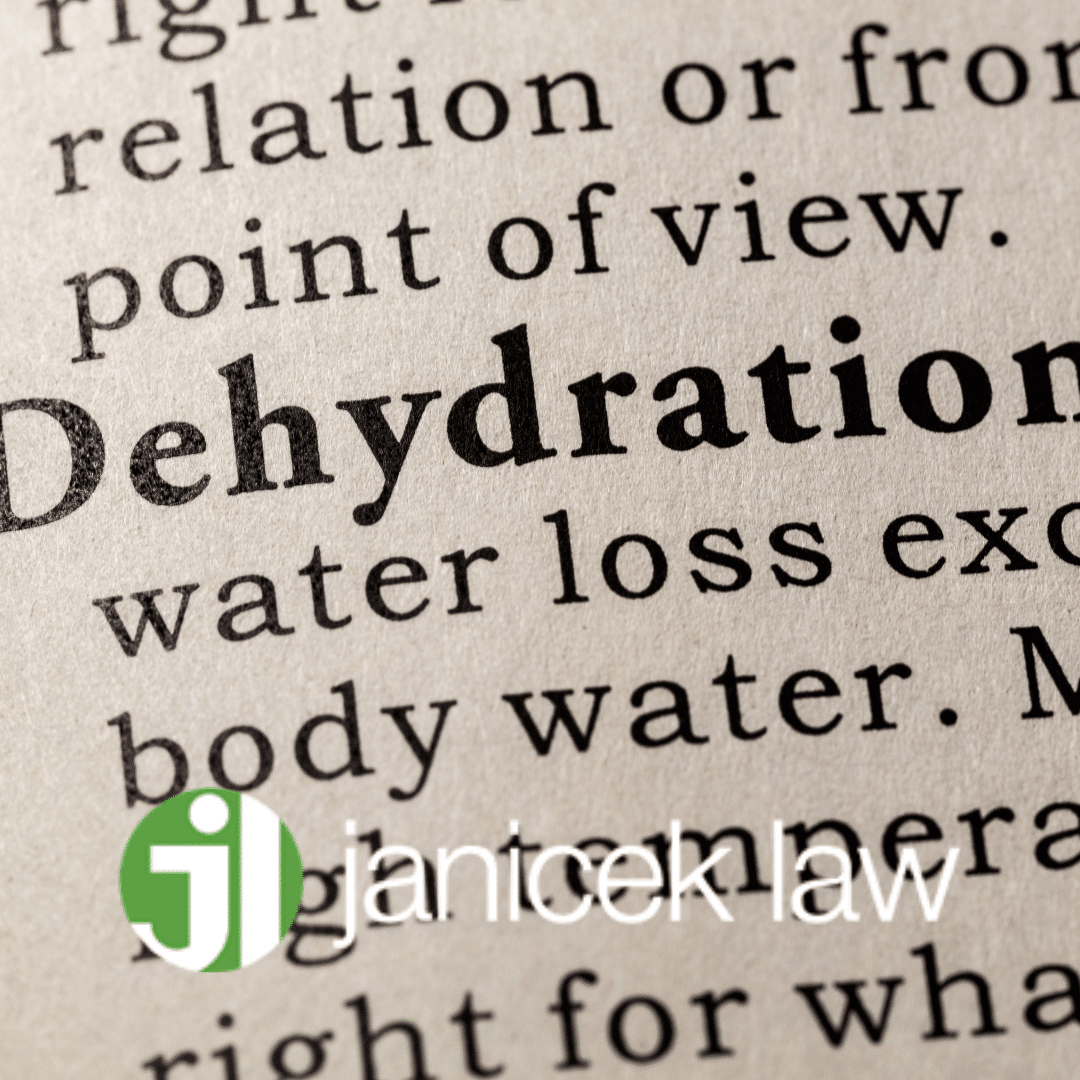Being able to recognize the signs of dehydration in seniors is crucial for preventing serious complications. Elderly people are more vulnerable to fluid loss, and early warning signs of dehydration for senior populations, such as fatigue, confusion, dry mouth, and decreased urine output, can signal a need for medical intervention.
In nursing homes and assisted living settings, these symptoms of dehydration in the elderly are often overlooked until they result in falls, urinary tract infections, or even pressure ulcers.
Neglect in nursing homes takes many forms. Perhaps the staff doesn’t respond when the person activates the emergency alarm. Perhaps they forgot to administer their medication on time. Or, perhaps they don’t help a patient move and roll over, leading to bedsores. Even when it’s not direct abuse, neglect can cause serious issues, especially when it comes to food and water. You’ll need to know the signs of dehydration in the elderly when you place your loved one in a nursing home or assisted living facility.
Contact a San Antonio nursing home abuse/neglect lawyer for a free consultation to learn more.
Signs of Nursing Home Neglect
Don’t always assume it will involve a major event with massive red flags, though. It could be very simple, something that flies under the radar, but it could still have serious ramifications.
For instance, what if your elderly loved one cannot get food and water on their own, but the staff neglects to help them? Even a short time without water can lead to a tremendous decline in their health.
Signs of dehydration include:
- Complaining about a dry mouth, about headaches or about feeling dizzy
- Having trouble walking or even just standing up
- Having eyes that appear sunken in
- A drop in urine output, blood pressure or both
- An increase in instances of constipation and other such issues
- An increased heart rate
The person may also seem tired, distracted, or disoriented when you talk to them. You’ll be able to tell that something is wrong, even if you’re not sure exactly what it is.
Can Dehydration Cause UTI Symptoms?
Yes, dehydration can cause UTI symptoms. This happens because the person’s urine becomes concentrated, allowing bacteria to grow more easily.
In elderly patients, especially those in nursing homes or assisted living facilities, dehydration-related UTIs may also contribute to sudden confusion or behavioral changes. These are mistaken for dementia or worsened cognitive decline in many Texas nursing homes. Families often discover that their loved one’s UTI dementia symptoms are actually the result of dehydration and untreated infections. Proper hydration and timely medical attention are critical to preventing complications like sepsis, kidney damage, or wrongful death from neglected infections.
Can Dehydration Cause Heart Attack Symptoms?
Yes, dehydration can cause symptoms that mimic or contribute to a heart attack. When the body is dehydrated, blood volume decreases, which forces the heart to work harder to circulate blood. This added strain can lead to:
- Rapid heart rate
- Low blood pressure
- Chest pain
- Dizziness or fainting
In older adults or those with pre-existing heart conditions, severe dehydration may trigger cardiac events by reducing oxygen delivery to the heart muscle. While dehydration itself doesn’t directly cause a heart attack, it can aggravate underlying conditions that increase the risk. Always seek immediate medical care if chest pain or shortness of breath occurs.
Can Dehydration Cause Bed Sores?
Yes, dehydration can contribute to the development of bedsores. When the body lacks sufficient fluids, skin becomes dry, fragile, and less elastic, making it more prone to breakdown. Dehydration also reduces blood flow and oxygen delivery to skin tissue, which impairs the body’s ability to repair pressure damage. In nursing homes and assisted living facilities, residents who are immobile and dehydrated face a significantly higher risk of developing pressure ulcers due to prolonged pressure and poor skin integrity.
A San Antonio bed sore attorney can help you determine whether you can sue a nursing home for bed sores based on the evidence.
Dehydration Symptoms and Memory Issues
This is especially a problem in nursing homes and assisted living centers because the elderly person may not remember when they last had a drink or may have no ability to communicate their discomfort. You may also expect some of these issues simply because of aging, so you may not notice the neglect. You really have to look for the red flags to see if they’re being neglected, and then you need to know what rights you have if they are.

